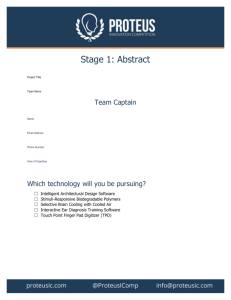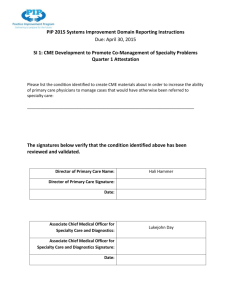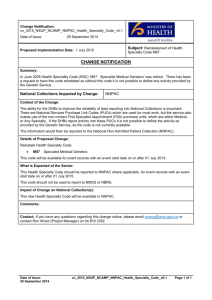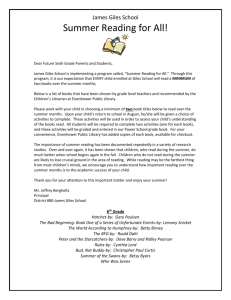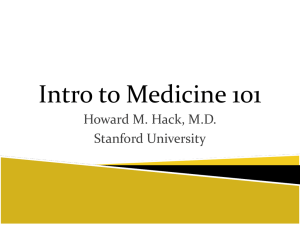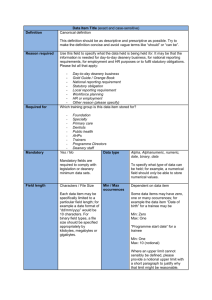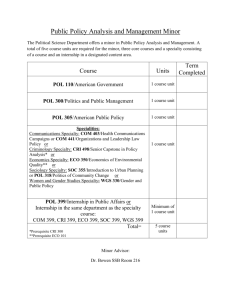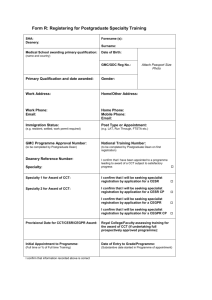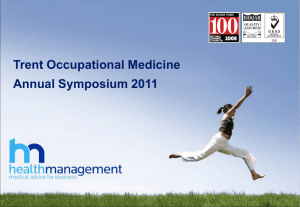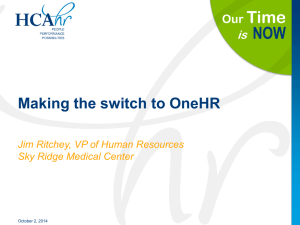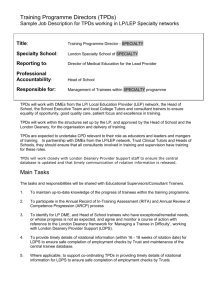Helping doctors handle specialty change
advertisement
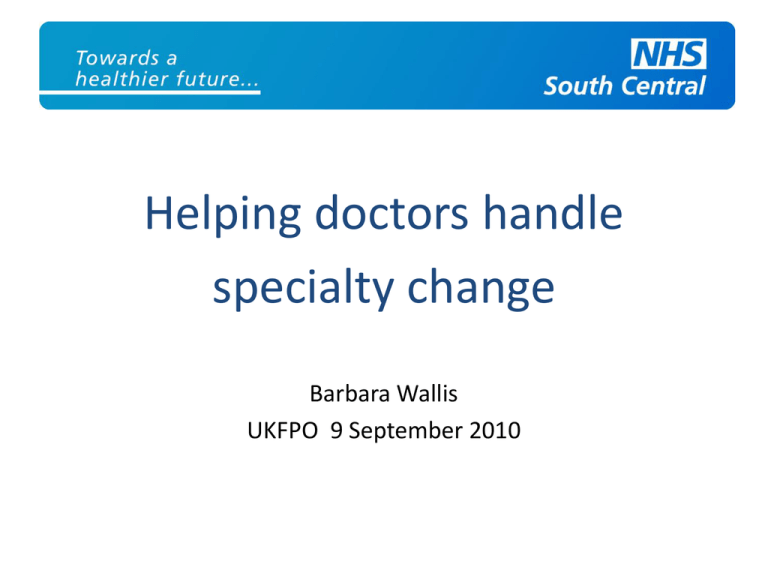
Helping doctors handle specialty change Barbara Wallis UKFPO 9 September 2010 What is the most frequent thing those seeking to change specialty tend to say? ‘You must think I’m mad!’ ‘I’m disappointed I didn’t make it in my first choice specialty’ Those changing specialty may be: • Making a voluntary change • Having to change: - training availability - lack of aptitude For those considering change this is a potentially fraught time...... • embarassment • anger • uncertainty about which direction • fear about chosen new direction • disappointment and loss of self-esteem Why look at this topic now? • Changing direction was not uncommon pre-MMC • There will always be a proportion of doctors who decide – or need – to change direction, whatever the system • However MMC has made doctors choose their specialty much earlier – less time to experience different options. • 2007 MTAS effect Oxford Deanery And some specific developments: • ‘Graduate expectations need to be carefully managed as it is likely that the availability of training places in certain specialities will be different from those available previously’ – Workforce Review Team, Assessment of Workforce Priorities 2009/10 • Increase in the predicted % of medical graduates needed in primary care – not all may have considered GP. A fast-track way of switching into GP may be politically expedient • More doctors may seek help to change direction/shift the focus of their work. On a piece of flipchart paper, in table groups,consider: Why, in your experience, do doctors think of changing specialty? What have you found has helped trainees switch? How could we help them better? Some quotes from successful switchers • ‘This isn’t about what you should or could do – it’s about what you want to do and that may evolve slowly.’ - Dr Giles P Croft, surgeon turned cycle journalist and cycle magazine doctor • ‘Your new career must be “you” - a 5* rule… ’ Dr Steve Rousseau, GP turned microbiologist • ‘If it’s in your heart, explore it until you know otherwise.’ Dr Paula Hunt, trainee surgeon turned GP Oxford Deanery What worked for them? • ‘Switch on your radar. Start networking.’ Giles P Croft • ‘What was important to me was.... the wholehearted support of senior trainees in the specialties I was leaving, who were generally disenchanted with life....support from my then girlfriend (now my wife).....the positive reaction of friends.......’ Dr Dan Faller, orthopaedic surgical trainee turned GP. Dealing with the feelings of transition: • ‘Getting off the conveyor belt is uncomfortable. Keep yourself uncomfortable. Anxiety is normal.’ Giles P Croft • ‘Lots of things will jump out of the bushes at you…Colleagues and relatives will not all be encouraging all of the time. Periodic attacks of cold feet …are inevitable.’ Dr Steve Rousseau • ‘I had to put blinkers on to focus on my surgical training, but once I’d taken my blinkers off, I couldn’t put them back on again…..I decided not to be the victim who didn’t/couldn’t pursue my original choice of surgery, but to be the best GP I could, and appreciate the best aspects of the job.’ Dr Paula Hunt Key words and phrases for our work with trainees changing direction..... what you want may evolve slowly Networking wholehearted support disenchanted uncomfortable Not the victim Some personal observations: • ‘Successful switchers’ are by definition resilient as they have succeeded! Some may need to dig deep for their resilience • Encouraging creativity and appetite for opportunities may be key • Self-awareness is fundamental but this can bring up other, difficult stuff • Those without a good support network may find the process especially hard – in particular those with family pressures to be a doctor. Sources: • How to change course in a medical career, Dr Steve Rousseau for Wessex Deanery website 2010 • Ten principles of career change, Giles P Croft, BMJ Careers Fair 2008/2010 • Interview with Dr Paula Hunt, June 2010 • Case study quoted in Switching specialty, BMJ Careers, May 2009 • Email exchange with Dr Dan Faller, June 2010 Copyright: Barbara Wallis 2010
